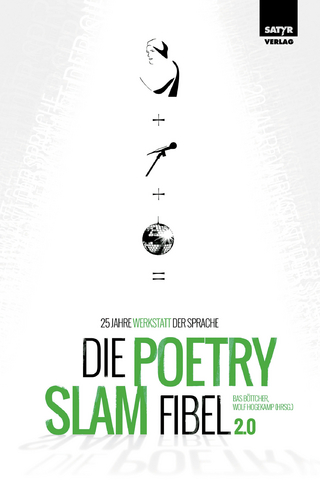
Hearing Sappho in New Orleans
The Call of Poetry from Congo Square to the Ninth Ward
Seiten
2012
Louisiana State University Press (Verlag)
978-0-8071-4441-1 (ISBN)
Louisiana State University Press (Verlag)
978-0-8071-4441-1 (ISBN)
- Titel z.Zt. nicht lieferbar
- Versandkostenfrei innerhalb Deutschlands
- Auch auf Rechnung
- Verfügbarkeit in der Filiale vor Ort prüfen
- Artikel merken
At once a meditation on this poetic city, its many languages and cultures, and a history of its forgotten poetry. Using Sappho's fragments as a guide, Ruth Salvaggio roams the streets of the city as she explores the migrations of lyric poetry from ancient Greece through the African slave trade to indigenous America and ultimately to New Orleans.
While sifting through trash in her flooded New Orleans home, Ruth Salvaggio discovered an old volume of Sappho's poetry stained with muck and mold. In her efforts to restore the book, Salvaggio realised that the process reflected how Sappho's own words were unearthed from the refuse of the ancient world. Undertaking such a task in New Orleans, she sets out to recover the city's rich poetic heritage while searching through its flooded debris.
Hearing Sappho in New Orleans is at once a meditation on this poetic city, its many languages and cultures, and a history of its forgotten poetry. Using Sappho's fragments as a guide, Salvaggio roams the streets and neighborhoods of the city as she explores the migrations of lyric poetry from ancient Greece through the African slave trade to indigenous America and ultimately to New Orleans.
The book also directs us to the lyric call of poetry, the voice always in search of a listener. Writing in a post-Katrina landscape, Salvaggio recovers and ponders the social consequences of the ""long song"", lyric chants, especially the voices of women lost in time, as it resonates from New Orleans's ""poetic sites"" like Congo Square, where Africans and Indians gathered in the early eighteenth century, to the modern-day Maple Leaf Bar, where poets still convene on Sunday afternoons. She recovers, for example, an all-but-forgotten young Creole woman named Lélé and leads us all the way up to celebrated contemporary writers such as former Louisiana poet laureate Brenda Marie Osbey, Sybil Kein, Nicole Cooley, and Katherine Soniat. Hearing Sappho in New Orleans is a reminder of poetry's ability to restore and secure fragile and fragmented connections in a vulnerable and imperiled world.
While sifting through trash in her flooded New Orleans home, Ruth Salvaggio discovered an old volume of Sappho's poetry stained with muck and mold. In her efforts to restore the book, Salvaggio realised that the process reflected how Sappho's own words were unearthed from the refuse of the ancient world. Undertaking such a task in New Orleans, she sets out to recover the city's rich poetic heritage while searching through its flooded debris.
Hearing Sappho in New Orleans is at once a meditation on this poetic city, its many languages and cultures, and a history of its forgotten poetry. Using Sappho's fragments as a guide, Salvaggio roams the streets and neighborhoods of the city as she explores the migrations of lyric poetry from ancient Greece through the African slave trade to indigenous America and ultimately to New Orleans.
The book also directs us to the lyric call of poetry, the voice always in search of a listener. Writing in a post-Katrina landscape, Salvaggio recovers and ponders the social consequences of the ""long song"", lyric chants, especially the voices of women lost in time, as it resonates from New Orleans's ""poetic sites"" like Congo Square, where Africans and Indians gathered in the early eighteenth century, to the modern-day Maple Leaf Bar, where poets still convene on Sunday afternoons. She recovers, for example, an all-but-forgotten young Creole woman named Lélé and leads us all the way up to celebrated contemporary writers such as former Louisiana poet laureate Brenda Marie Osbey, Sybil Kein, Nicole Cooley, and Katherine Soniat. Hearing Sappho in New Orleans is a reminder of poetry's ability to restore and secure fragile and fragmented connections in a vulnerable and imperiled world.
Ruth Salvaggio is Professor Emerita of English Literature and American Studies at the University of North Carolina, Chapel Hill. The author of several books on poetry and feminist studies, she is a native of New Orleans and grew up in the Ninth Ward.
| Erscheint lt. Verlag | 30.6.2012 |
|---|---|
| Reihe/Serie | Southern Literary Studies |
| Verlagsort | Baton Rouge |
| Sprache | englisch |
| Maße | 152 x 229 mm |
| Gewicht | 333 g |
| Themenwelt | Literatur ► Lyrik / Dramatik ► Lyrik / Gedichte |
| Geisteswissenschaften ► Sprach- / Literaturwissenschaft ► Anglistik / Amerikanistik | |
| Geisteswissenschaften ► Sprach- / Literaturwissenschaft ► Literaturwissenschaft | |
| Sozialwissenschaften ► Soziologie ► Spezielle Soziologien | |
| ISBN-10 | 0-8071-4441-X / 080714441X |
| ISBN-13 | 978-0-8071-4441-1 / 9780807144411 |
| Zustand | Neuware |
| Informationen gemäß Produktsicherheitsverordnung (GPSR) | |
| Haben Sie eine Frage zum Produkt? |
Mehr entdecken
aus dem Bereich
aus dem Bereich
Deutsche Gedichte aus zwölf Jahrhunderten
Buch | Hardcover (2023)
C.H.Beck (Verlag)
28,00 €
25 Jahre Werkstatt der Sprache
Buch | Softcover (2020)
SATYR Verlag
16,00 €


